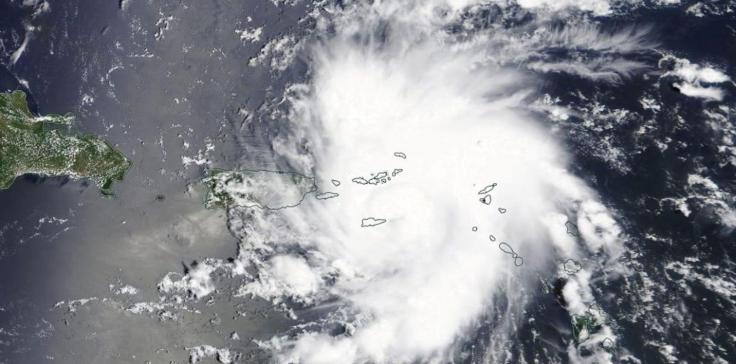Hurricane Preparation Is the Best Form of Defense
The Caribbean's hurricane season runs from June 1st to November 30th, although typically the worst of the storms the might affect St. Kitts or Nevis are in mid August to late September. In 2017, Hurricane Irma was the first ever Category 5 storm to hit the Leeward Islands, followed just a few weeks later by a second Category 5, Hurricane Maria. Initially forecast to have a direct hit on Nevis, both hurricanes took incremental turns in their final hours and swerved away from the island.
The tsunami that devastated the Indian Ocean on Boxing Day 2004 happened without warning; the earthquake that flattened Haiti in 2010 was not foreseen. The advantage of hurricanes over both tsunamis and earthquakes is that they are predictable, visible, living creations, forging their way across oceans and building up strength as they travel – or petering out into insignificant squalls. Hurricanes are monitored and tracked, their path something that can be known. As a consequence, it is relatively simple to prepare for hurricanes.
Before a Hurricane:
Monitor the path of a hurricane using the best tracker websites, stormcarib.com and
nhc.noaa.gov. There are clear warning systems in place, and if a hurricane is likely to impact Nevis the government will of course issue guidelines. The main things to be aware of include:
- having insurance in place that covers hurricane damage;
- fitting storm shutters to your property. If we are your property managers, we will of course arrange for these to be put in place should a storm approach in your absence;
- purchasing a generator and having a supply of fuel available in the likely event of a power outage. Generators that kick in automatically are an excellent idea;
- if you are on island, filling any vehicles with fuel because this might not be available for a period of time after a storm passes through;
- if you are on island, buying a supply of non-perishable foods such as pasta, rice and tinned products; bottled water is also a good idea, although there are increasingly sophisticated filter systems on the market that can even work with rainwater;
- try and create a garden that has as few loose objects as possible, as these will need to be tied down or stored inside during a storm;
During a Hurricane:
There is one basic rule that applies to all hurricanes: get inside and stay inside.
Should you be on island, choose a room on the ground floor in which to hunker down. Even with storm shutters in place, stay away from windows and exterior doors. Leave a window open a fraction: this prevents a vacuum from forming, the most likely way of losing a roof during the storm.
It is likely that electricity will be turned off just before a storm hits and may not come back on for several hours – or even days – afterwards. You can prepare for this in advance by either having a generator, or by charging all devices fully and using them sparingly.
It is also possible that water will be cut off to your house for a period of time. Many houses on Nevis have vast water tanks; a pump that comes on automatically is invaluable.
After a Hurricane:
Do not emerge until it is safe to do so. Never forget that if the eye of the storm passes over the island directly, there will be a 'second surge' – keep following the hurricane trackers and wait until the storm has definitely passed.
Hurricanes invariably bring an extraordinary quantity of rainfall: the rivers that are formed will disappear almost as quickly as they appear, with water rushing down from the Peak and out into the sea.
Bear in mind that roads may be blocked by debris or falling trees. Officials on St. Kitts and Nevis are used to identifying areas of concern and will work rapidly to clear all routes.
If your property is managed by NSR, we will of course do a full maintenance check after a hurricane and can organise for any damages to be repaired and gardens to be made beautiful again.
Being prepared is the best form of defence against a hurricane that might happen to pass near to the islands, and by taking a few sensible steps it is possible to minimise potential damage to your home and inconvenience to yourself.
Recent Blog Posts
Archives
- February 2024 (1)
- January 2024 (1)
- October 2023 (1)
- September 2023 (2)
- August 2023 (1)
- July 2023 (1)
- June 2023 (1)
- March 2023 (1)
- November 2022 (1)
- October 2022 (1)
- September 2022 (1)
- May 2022 (1)
- April 2022 (1)
- March 2022 (1)
- February 2022 (2)
- January 2022 (1)
- December 2021 (2)
- November 2021 (3)
- October 2021 (3)
- August 2021 (2)
- July 2021 (1)
- May 2021 (2)
- April 2021 (2)
- March 2021 (2)
- February 2021 (1)
- January 2021 (2)
- December 2020 (2)
- November 2020 (1)
- October 2020 (1)
- September 2020 (3)
